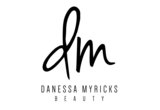Danessa Myricks’ Take on Inclusivity in the Beauty Industry
Published Mar 16, 2020
In case you’re behind on your Beautylish reading for the month, we’ve been busy celebrating the women that are making history. It is Women’s History Month, after all. We kicked off our series withUMA Founder Shrankhla Holecek followed by a conversation with Lit Cosmetics Founder Jodie Perks. Now, we’re excited to share our candid conversation with Danessa Myricks, founder of her namesake brand known for having an inclusive and represented shade range. Here’s her take on the current state of the beauty industry—from the strides we’ve made for greater diversity and inclusion to the work that is yet to be done.
 Inclusivity has become somewhat of a buzzword these days, but it’s much deeper than that. What do you think has caused the shift and forced brands into being more inclusive?
Inclusivity has become somewhat of a buzzword these days, but it’s much deeper than that. What do you think has caused the shift and forced brands into being more inclusive?
I think there are several factors that have created the shift. The successful launches of brands like Fenty have caught the attention of other brands. Customers were extremely vocal about why the launch was so important to them, and they showed that through their feedback on media channels and ultimately, with their dollars. Women of color have always been vocal about the lack of diversity in cosmetics, and inclusive brands like Fenty made it clear that they were listening. In the past, they have been invisible and are now finally being seen and heard in a big way.
As a response to Fenty’s undeniable success which was greatly in part to their ‘finally something for you’ message, many brands suddenly adopted a similar message as a ‘me too’ reaction rather than a thoughtful execution of an expanded shade range.
Suddenly, everyone started launching 40+ shade collections and putting women of color front and center in their marketing campaigns.
When new brand launches don’t get the inclusive memo, the audience is quick to point it out on social media and through their lack of financial support. When brands would fall short, they’re held accountable for their insensitivity or failure to play well at the inclusivity game. Customers want to be seen and heard and are no longer willing to support brands that do not support them.
What are your thoughts on the current representation of different sizes, skin colors, etc. in the beauty world?
It’s a beautiful thing—now more than ever, I can turn on the TV or flip through the pages of a magazine and see representations of myself. This has not always been the case.
As a mom with a young daughter trying to navigate the world, I’ve seen the damaging effects that come when unrealistic expectations and standards are set by a lack of diversity in media. I love that this is changing. Seeing so many age groups, body sizes, skin tones, and gender expressions is so refreshing and necessary both for current and future generations.

Why was it important for you to be more inclusive in your shade range from the beginning?
I know firsthand what it feels like to not be able to find cosmetics that work for my skin tone. It has been the story of my life and the lives of so many of my friends and family members. As a makeup artist for over 20 years, I’ve seen the gaps. I’ve always viewed makeup through a global lens and have felt the importance of having a strategic, represented range. In my own immediate family, there are very fair skin tones as well as deeper skin tones, like my own. Creating a collection of products that only a small segment of the population, or even my family, can participate in was never an option. Inclusion has always been a part of my cosmetic development story.
What do you hope for the next generation of women that are growing up seeing more women that look like them in the media compared to previous generations?
I’ve always believed that for many people, you have to see it to know you can be it. Once one person ran a mile in under four minutes, suddenly others do it and before you know it, it becomes a standard. For this new younger generation, seeing more images of themselves throughout the media will undoubtedly expand their perspective on what’s possible for them. It becomes so much bigger than finding your shade of foundation—it becomes more about discovering, understanding, and embracing who they are and where they fit in the world. Seeing people who look like them in spaces that are meaningful to them will change everything.

What can consumers do to continue demanding greater inclusion from brands?
Speaking up, sharing their stories, expressing their disappointment in spaces that force brands to pay attention like social media will continue to create serious impact. Actively supporting brands that put them first or make them an equal part of the conversation will also create significant impact. The industry will always follow the dollars.
Are there any female founders that inspire you? Who and why?
Fortunately there are so many to speak of, across so many industries. I’m inspired by female entrepreneurs doing what they love at every level, like Felicia Walker from “This That Beauty” or Jackie Aina who has done so much for women of color in the beauty industry on her YouTube channel. Additionally, Nefertitie Nguvu is an inspiring director and filmmaker dedicated to telling the stories about under representation in the black community. She is tenacious about ensuring that important stories are told and that the next generation of women see themselves projected in media in the most powerful ways. She raised money through a Kickstarter campaign to create her first feature film—the most beautiful movie I’ve ever seen, and which won multiple independent film awards.
Every day, I discover more women who inspire me, doing the thing they love, living out their dreams, inspiring me to do more, be more and have more. These models of success are so important for me. I seek them out and always share them with both my peers and my daughter. There are so many female heroes everywhere. I hope to be one of those heroes for someone else.

Any advice to other female founders and entrepreneurs that are just starting out?
There is a famous quote by Nelson Madela, “It always seems impossible until it’s done”. When I think about my past 15 years of building this business, there are hundreds of moments to speak of where I thought that I couldn’t take another loss, I couldn’t take another failure, I couldn’t miss another dance or recital, I couldn’t cry in my pillow another night. Looking back, I can honestly say it always works out. Now, when I’m having difficult moments my new mantra is: things are always working out for me, and somehow they always do.
I am an accidental makeup artist. I was a single mother of two who was laid off from a job and living on unemployment, and now I run a multimillion-dollar cosmetic brand and do what I love every day, and I’m just getting started!
What I would say to new female founders is that hard doesn’t mean impossible. Their ideas are valid and important, and their creations are relevant and necessary. We need them. Their hard work is necessary and will undoubtedly pay off.
I would share these words I once read that really stuck with me:
“You are braver than you believe, stronger than you seem, smarter than you think, and twice as beautiful as you’d ever imagined.” Don’t give up!
Looking to support an inclusive beauty brand? Take a look atDanessa Myrick’s inclusive shade ranges, and check back for more candid conversations with inspiring female founders throughout the month of March.
All images courtesy of Danessa Myricks
You Might Also Like
-
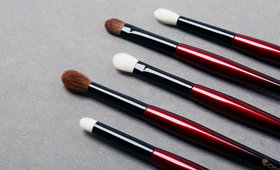
Stories
All the Details on Sonia G.’s Newest Brush Set
- 4
-
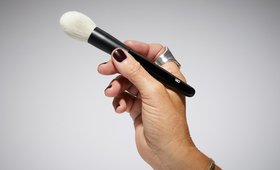
New Releases
Get the First Look at Wayne Goss’s The First Edition Collection
- 40
-
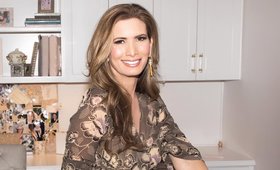
Stories
COVID-19: Jouer Cosmetics Creates a New Product to Help Frontline Warriors
- 1
-
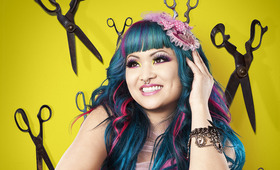
Features
Behind the Brand: Amy Doan of Sugarpill Cosmetics
- 581
-
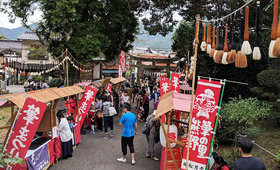
Stories
There’s a Whole Town That’s Dedicated to Makeup Brushes
- 7
-
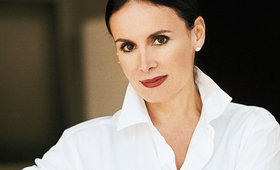
Behind the Brand
Quality, rarity, luxury: Terry de Gunzburg welcomes us into the elegant world of BY TERRY
- 104



